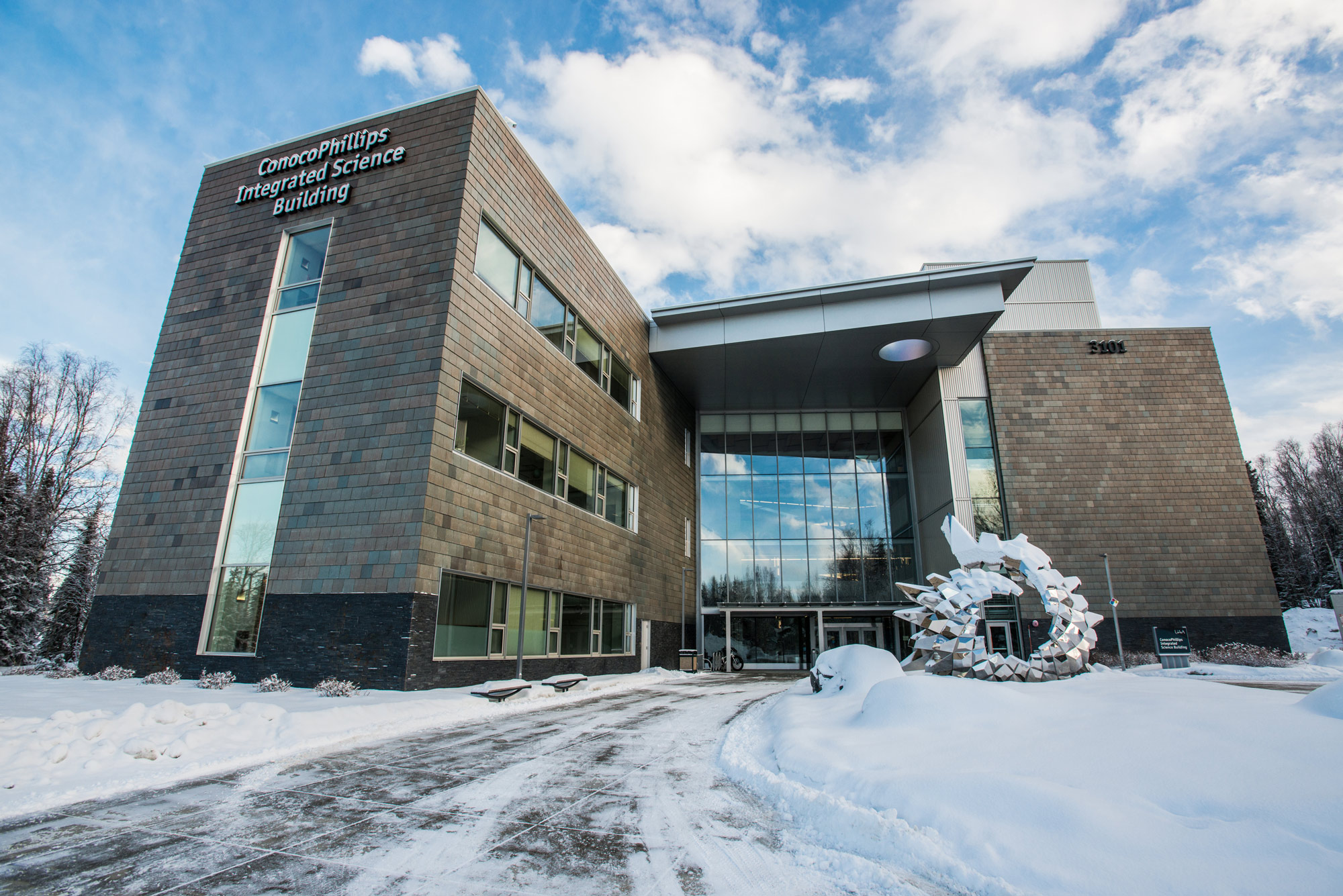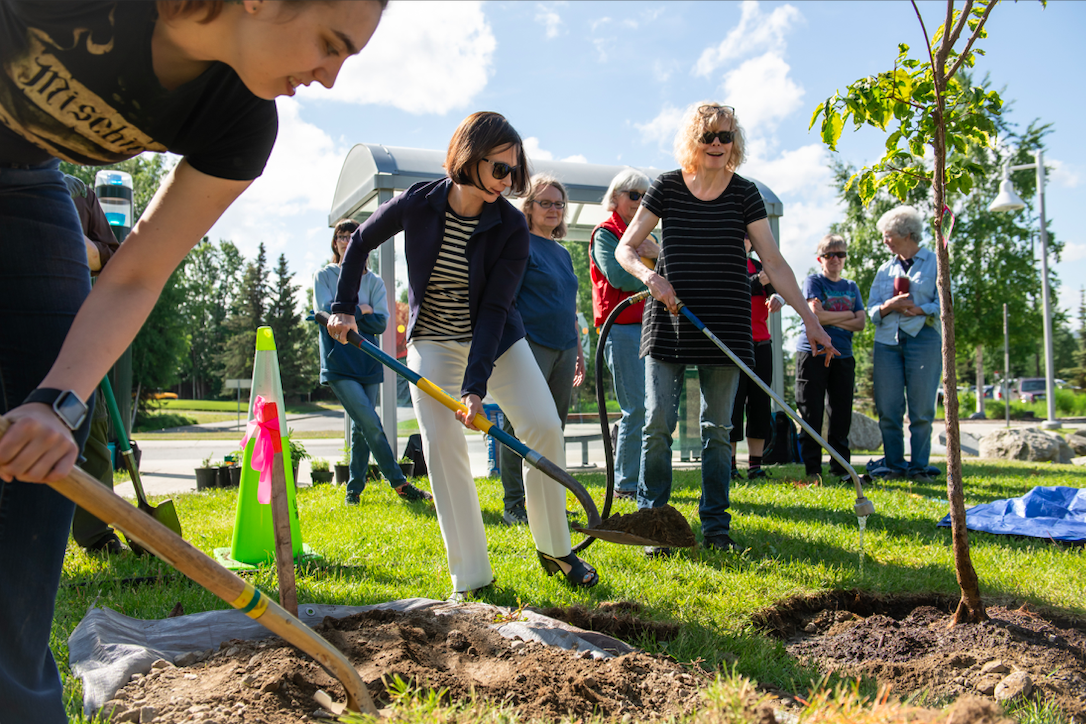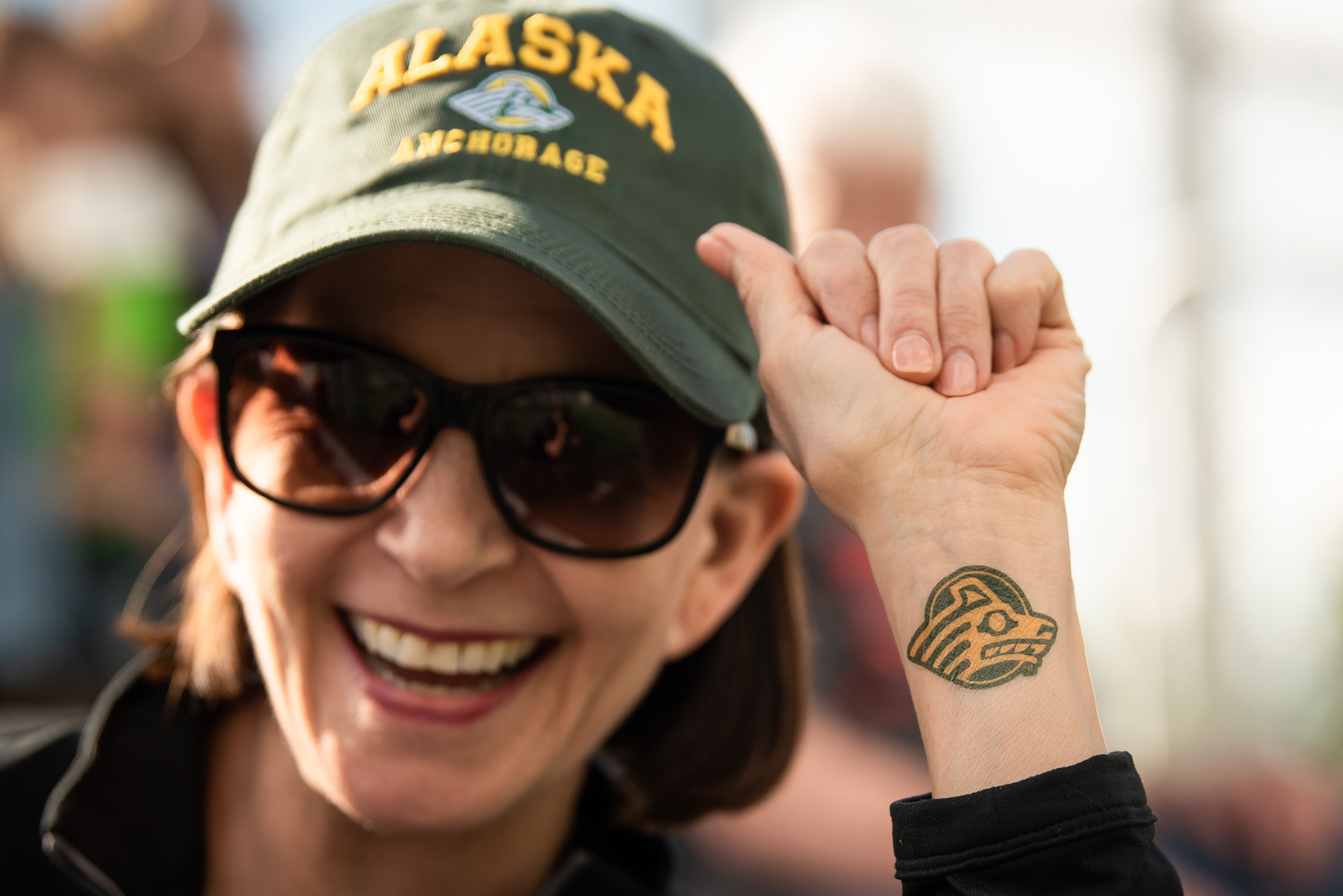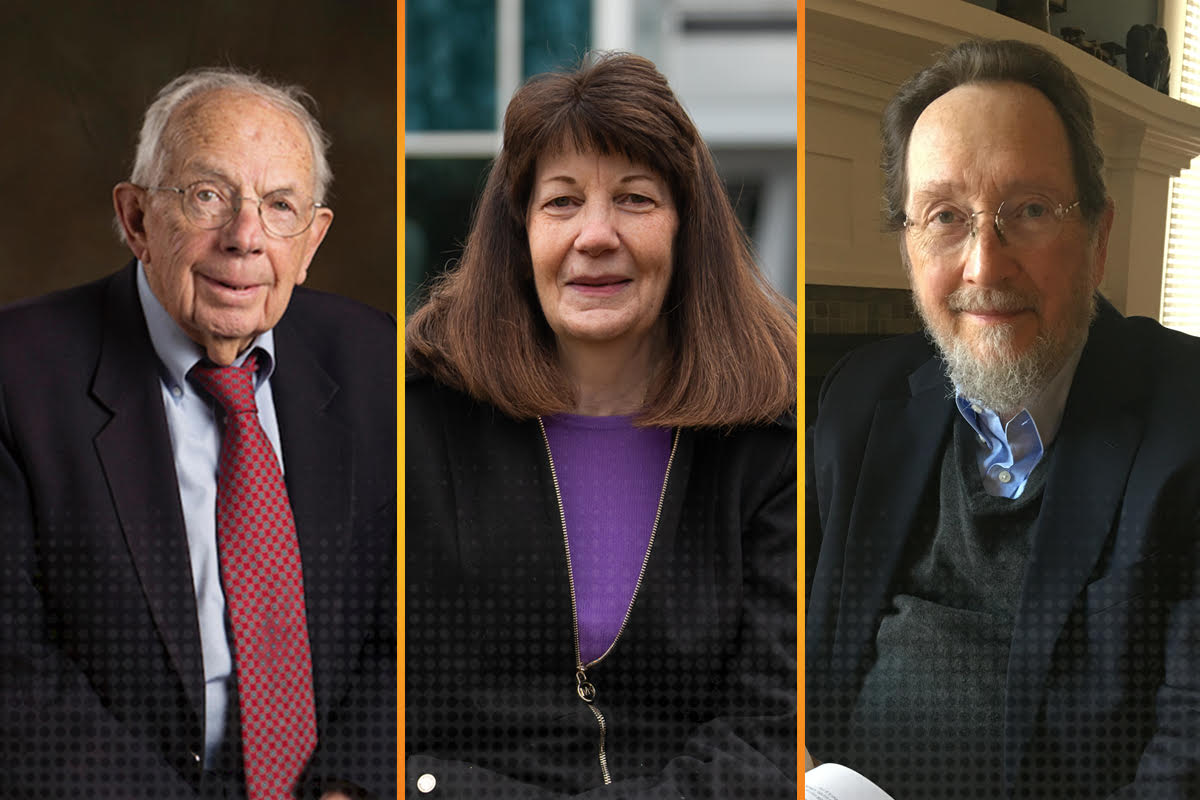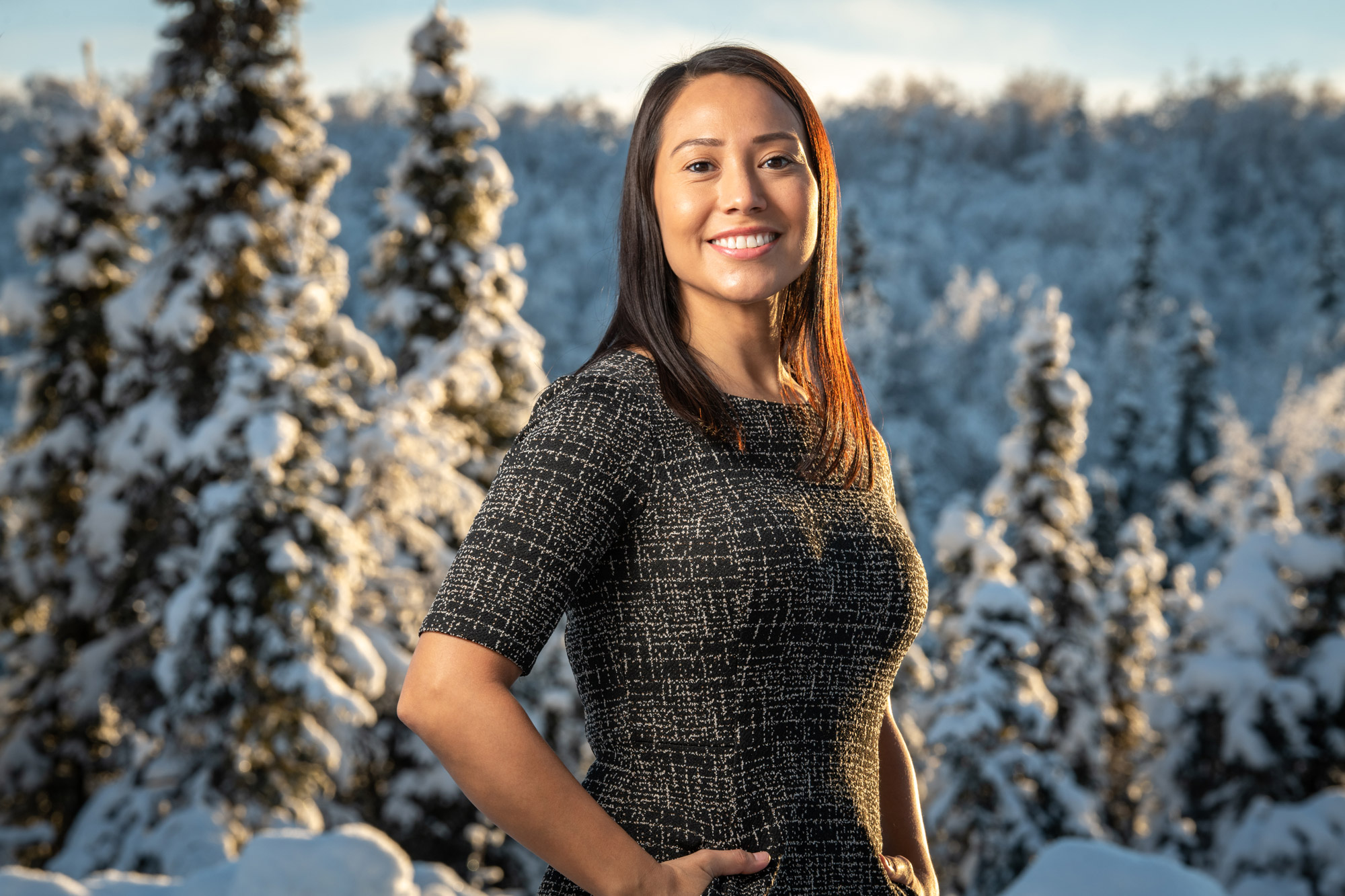How internships offer opportunity for students and startups
by Gretchen Fauske |

Meet John Boren, a 2020 graduate from UAA’s College of Engineering computer science and engineering program. He’s been piecing together his college education for the last 20 years.
The first in his family to pursue a college degree, Boren enrolled at UAA and began paying for each class out of pocket, working multiple jobs during the school year and spending summers in his hometown of Seward serving Alaska’s busy visitor industry.
Boren made it through two years of college, but the more he worked to afford tuition, the less time he had for classes and studying.
“I just started taking fewer classes, dropped others and eventually stopped going,” Boren said.
The next two decades in Boren’s life were marked by living overseas in Europe and South America; a stint at the University of Colorado Denver; a brief return to UAA; internships at high-profile companies like Lipper Analytical Services — a division of Reuters — and IBM Research; and jobs as a deckhand, assistant project manager for a boilermaker servicing company, bar manager and a longshoreman.
In 2015, Boren was working as a floorhand for Doyon Drilling and making more than $100,000 per year when oil prices fell to $27. He remembers watching as colleagues lost their jobs and thinking, “Is this my future? When I’m 50 will I lose my job if the price of oil drops again?”
The experience inspired Boren to quit his high-paying job and use his savings to finally finish his degree at UAA. Although Boren knew he wanted a future in computer science, he didn’t know that he would also get a taste of the startup life.
Shortly after beginning his final year of his undergraduate program, Boren saw a poster advertising a new program called Upstart Internship. Offered by the University of Alaska Center for Economic Development (UACED) as part of the ARCTIC Program funded by the Office of Naval Research, the program pairs students with local startups to learn about entrepreneurship and what it means to be a founder. Intrigued by the possibility of working for Anchorage-based Legalverse, a startup offering electronic document management for legal teams, he applied and landed the job.
“Of all the internships I’ve had over the course of my college career, the Upstart Internship was the best,” Boren said. “My boss, Jeff Levin, gave me relevant, cutting-edge SaaS (software as a service) work with time for me to research and understand what I was working on. More importantly, Jeff really focused on being a mentor and dedicated time to building our relationship. It was a great way to learn, and was especially rewarding because I knew my work was making a difference in growing his company. That kind of experience is hard to find in the software industry.”
Margo Fliss, Upstart Internship program manager at UACED, says the time spent on mentorship and professional growth is intentionally built into the program.
“Companies say that students apply for jobs but don’t have the experience or soft skills needed, and students say there aren’t opportunities for them to get experience or develop soft skills because companies won’t hire them,” Fliss says. “This program bridges both challenges — it gives students hands-on experience and professional development before graduation to ready them for the workforce.”
The program also provides Anchorage startup companies — often operating on a shoestring budget and hungry for talented employees — the opportunity to work with some of Alaska’s brightest students. Companies must apply to the program to be considered for each cohort, and the number of applicants continues to increase. After companies are selected, prospective interns apply and go through an interview process.
Startups participating in the 2019-20 cohort included Gennaker Systems (autonomous aircraft software); The Launch Company (commercial space/rocket launches); The Boardroom (a coworking space serving numerous startups); Launch Alaska (a startup accelerator); Alpine Fit (outdoor apparel); and Legalverse.
Fliss says that the Upstart program differs from what some might consider a typical internship that often includes filing or coffee runs.
“Startups who apply to be part of our program know that students need to be engaged beyond basic tasks — they are part of work that is critical to the success of the company,” Fliss said. “Because of this, students are a valued member of the team and they learn firsthand what it's like to start and run your own business.”
The Upstart Internship program emerged from UACED’s work in the entrepreneurial ecosystem, Fliss says.
“Rates of young entrepreneurs in Alaska are low and falling. Although over 60%of 20-somethings say they want to own a business, few of them actually do, and only 6% of Alaska’s businesses with employees are owned by someone under 35. By helping students engage in our startup community, we’re helping them visualize entrepreneurship as a career path,” she said.
For some, launching their own company might come sooner than expected.
Boren started applying for jobs in February, hoping to find a computer engineering opportunity that would utilize his degree. Initially, he felt like his prospects were promising. The onset of COVID-19 changed that.
“All of a sudden there just weren’t jobs to apply for anymore,” Boren said. “The day I graduated, Doyon Drilling — my former employer — laid off more than 300 people. There are less jobs out there, and more people competing for them, for less money.”
He began evaluating other options.
During his last semester of college, Boren participated in another one of UACED’s programs, the Upstart Alpha Startup Accelerator, which is also part of the ARCTIC program.
Accelerators offer intensive mentorship and experiential learning over a period of three to six months to a cohort of entrepreneurs. When they “graduate” from the program, participants have ideally compressed years of startup learning into months.
“I was already drawn to be part of Alaska’s startup scene because of my internship,” he says. “And I thought it would be like a mini business school. I wanted to learn from people who had already launched a company, figure out who the players are and understand business aspects like product market fit.”
During the program, Boren worked on an app called GIF Dat, which creates GIFs using voice recognition. It is the first app in a series that Boren is developing relating to voice recognition.
Other participants pursued concepts like an all-in-one family communication platform, financial literacy programming for businesses, an alcohol-free third space for young adults, a website for concert-goers, a hydroponic food production company, a digital banking service for Nigerians and bilingual, early-childhood education resources.
The accelerator focuses on building entrepreneurial skills and relationships within the startup community. Not all participants will continue on with their businesses, having learned that their concepts weren’t feasible or sustainable. Boren is one of them.
“I realize I probably won’t make any money with GIF Dat, but now I have the tools to work faster on the next product I launch, for myself, or for a company,” Boren said.
Currently, he’s working on a project automating a data-mining pipeline for UACED and says that if he needs to he will focus more on launching his own company instead of seeking employment at a company. Over the years, he’s learned a lot about how plans can change, and is comfortable with uncertainty.
“You just never know what’s going to happen, but opportunities will always present themselves,” said Boren. “But what I do know is that I’m always going to be working hard to better myself and my family. And someday, whether it’s sooner or later, I’m going to be my own boss.”
UACED is currently recruiting for their Upstart Internship and accepting applications for the 20-21 cohort.
 "How internships offer opportunity for students and startups" is licensed under a Creative Commons Attribution-NonCommercial 4.0 International License.
"How internships offer opportunity for students and startups" is licensed under a Creative Commons Attribution-NonCommercial 4.0 International License.










